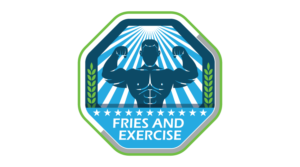A unique experience often follows the consumption of a pre-workout supplement: a tingling, almost electric sensation across the skin. This ritual is familiar for seasoned athletes — consume, tingle, train. Yet, few fully understand the biological process unfolding beneath the surface during those brief, buzzing moments.
What feels like a minor discomfort is the first signal in a sophisticated chain reaction to enhance muscular performance. Understanding this connection sheds new light on the role of beta-alanine itch and why this fleeting sensation is a powerful indicator of what’s to come.
The Amino Acid Behind the Sensation
The tingling sensation commonly known as beta alanine itch is caused by — unsurprisingly — beta-alanine, a non-essential amino acid that stimulates a specific set of nerve receptors known as MrgprD. These receptors, typically inactive, are abruptly activated when beta-alanine levels rise sharply in the bloodstream. The result is a harmless, sometimes intense, itching or tingling primarily felt on the face, neck, and upper limbs.
Although the body can produce beta-alanine in small amounts, supplementation significantly increases its availability. This surge triggers the nerve response, a signal that the compound is being absorbed and beginning its physiological work.
While temporary, this reaction marks the starting point of a beneficial transformation occurring at the muscular level.
From Sensation to Strength
Once absorbed, beta-alanine combines with the amino acid histidine to form carnosine, a dipeptide stored in muscle tissue. During high-intensity training, lactic acid and hydrogen ions accumulate, leading to the familiar “burn” and a decline in performance. Carnosine plays a critical buffering role — helping to stabilize muscle pH and delay fatigue.
Elevated carnosine levels allow athletes to sustain higher intensity for more extended periods and recover more effectively between sets. Research shows that beta-alanine supplementation is particularly beneficial for efforts lasting between one and four minutes — such as sprints, high-intensity intervals, and demanding resistance training sets.
Dose and Timing: Getting It Right
The presence or absence of tingling doesn’t always correlate perfectly with performance outcomes, but it often helps gauge effective dosing. Most studies support 3 to 5 grams of beta-alanine daily as the sweet spot for both ergogenic benefits and perceptible effects.
Timing also plays a role. Taking beta-alanine approximately 30 to 45 minutes before training ensures peak blood concentrations align with your workout. Taking it too early may reduce its perceived effectiveness; too late, it may still be causing a distraction during your warm-up or first sets.
Why Reactions Vary from Person to Person
Not everyone experiences beta alanine itch to the same degree. Individual sensitivity varies based on body mass, metabolic rate, and genetics. Some users become desensitized over time, noticing reduced sensations with continued use, while others remain consistently responsive.
Interestingly, the performance benefits do not rely on the presence of tingling. As muscle carnosine levels increase through regular supplementation, the benefits continue, regardless of whether the itch remains noticeable.
Conclusion: A Small Discomfort, a Big Advantage
The unique tingling caused by beta-alanine is more than just a quirk — it’s a sign of a potent supplement doing precisely what it’s meant to do. While initially surprising, this harmless sensation is a precursor to improved endurance, power output, and overall training capacity.
In performance supplements, few ingredients are as well-studied and consistently effective as beta-alanine. And for many, that fleeting beta-alanine itch is a welcome signal that it’s time to perform.
